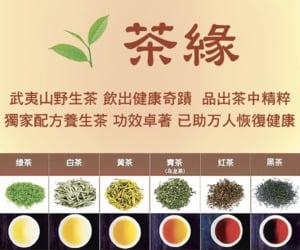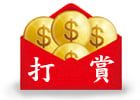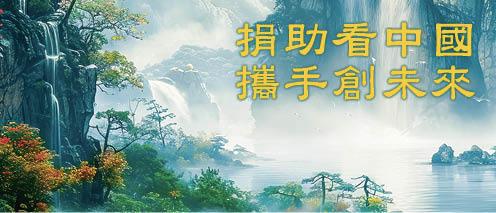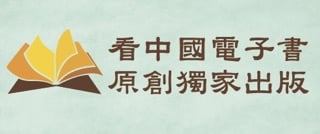这是美国国家广播公司的一段采访:
BLOCK: The film portrays the war as a triumph over U.S. imperialism and has been used as anti-American propaganda. But I when I reached Lang Lang today, he said he had no idea about any of that.
Mr. LANG LANG (Pianist): The truth is, I only know this piece because it's a beautiful melody. And, actually, I played many times as encore before because it's, artistically, it's a beautiful piece. I never thought about, you know, and I never knew about anything about, you know, the background.
郎朗在此的回答中极力否认他知道《我的祖国》的韩战背景(他在美国总统给中国国家主席胡锦涛的国宴上演奏的)。并且一再强调他选《我的祖国》这首曲子的原因,仅仅是因为《我的祖国》有“美丽的旋律”“美好的和平”。
但是,从郎朗在新浪的博客中,我们可以读到:“能够在众多外宾,尤其是在来自“五湖四海”的元首们面前演奏这首赞美中国的乐曲,仿佛是在向他们诉说我们中国的强大,我们中国人的团结,我感到深深的荣幸和自豪。”
在英文中对美国记者强调的“beautiful melody” “beautiful piece”,在中文中变成“诉说我们中国的强大,我们中国人的团结”。
关于郎朗是否知道《我的祖国》的韩战背景,郎朗的钢琴老师在介绍郎朗在中国是怎样学习和练习弹奏《我的祖国》的情况时,已经作了很好的解读,郎朗不仅知道而且他应该比别人更清楚《我的祖国》真实背景,《我的祖国》钢琴曲不仅收录了电影《上甘岭》中的《我的祖国》全部乐曲,还收录了同是韩战背景的电影《英雄儿女》的部分音乐。
BLOCK: Well, some people, as you know, on blogs in China, are seizing on this, saying that it was a moment for a world famous pianist to sort of drop a note of nationalism, of Chinese nationalism into the States here.
Mr. LANG LANG: You know, that's the last thing I want to do because, first of all, you know, I grew up as a teenager in America. I mean, I studied at Curtis. And I feel both China and America is my home. And, you know, I have a really wonderful emotions towards American people. And I have a lot of my great friends, my teachers, are all from here.
So for me, you know, to be invited to play at White House is a great honor. And especially, you know, to play for president of my homeland and also the country which I live, which is America. So, I only wanted to bring the best, you know, of the music melodies. And that's it, you know. I am absolutely say it from bottom of my heart that, you know, I think music, it's a bridge between our cultures.
当记者问到关于中国的民族主义时,郎朗生拉硬扯,始终不敢把他写在他中文博客中的:“尤其是在来自“五湖四海”的元首们面前演奏这首赞美中国的乐曲,仿佛是在向他们诉说我们中国的强大,我们中国人的团结,我感到深深的荣幸和自豪”说出。
事实上,在出席美国总统给中国国家主席胡锦涛的国宴前,1月19日郎朗在接受凤凰卫视采访时就已经说过:”《我的祖国》是我的想法,因为我想在白宫这样的国宴上面演奏一曲,能把我们作为中国人非常自豪骄傲的心情表达出来这首曲子,我觉得特别好。另外,这首曲子本身我就特别喜欢,每次演奏的时候我觉得都非常动感情。”
我不知道郎朗为什么在对美国记者和中国记者的答复中总会有如此大的反差?
BLOCK: The song that you played, in the movie, in the "Battle on Shangganling Mountain," which came out in 1956, it is a very nationalistic song and it...
Mr. LANG LANG: You know, I never know about that movie. I just learned it afterward. It's like, 1956. This is when my mother was two years old. I mean, this is 55 years ago. And when I grew up, I only hear this as a beautiful melody. That's it. And this piece is very popular as a traditional Chinese song.
令人可笑的是,在不到5分钟的采访中,我数了一下,郎朗使用了16个“You know”,如果美国记者全you know,她根本无须采访郎朗。最可笑的是,郎朗为了证明他不知道《我的祖国》的韩战背景,他竟然拿出1956年电影《上甘岭》拍摄时,她母亲才两岁,这话用英语说,说给一个美国人,似乎可以糊弄一下,讲给中国人不是大笑话么?我比郎朗她娘小一大节,是否也就证明我就不知道《我的祖国》的韩战背景么?我的孩子也就不知道《我的祖国》的韩战背景么?
事实上电影《上甘岭》在中国家喻户晓的另一个原因是缺水,中国到处停水缺水,一到这时,中国人就会扯到电影《上甘岭》。
BLOCK: Well, Lang Lang, what were your - how did you react when you heard that in China, on the Web, people were adding meaning to this choice thinking you were sort of thumbing your nose at the United States in some way? What did you think?
Mr. LANG LANG: I feel very sad. You know, I very sad. And, you know, and I must say, disappointing. Because, you know, as a person, what I'm trying to do, and what my missions are, you know, making music. And, you know, I'm very honored that people inviting me to play in those great events and to connect us to classical music and to music, to Chinese music and to American music, to, you know, to world music. And once, you know, people use it as a political issue, that makes me really sad because I am a musician. I'm not a politician.
我不知道哪个蹩脚翻译把这段翻译成,“郎朗接受美媒采访肠子都悔青了”,事实上,郎朗从头到尾没有一点歉意,他只是在指责那些批评他的人们让他失望,因为他没有任何政治目的,仅仅是一个音乐家为了“美好的和平”和“美丽乐曲”而演奏。
假如,我们只读到他16个you know的英文答辩,假如让一个不知道中国国情的美国人来看他的16个you know的英文答辩,他或许是很无辜。但是,我们把他的中英文答辩比较一下,我们就可以看到,郎朗不仅是一个政治家而且是一个颇有心计的政治家:
1,为什么对美国广播公司用英文讲的话不用中文公布在他的中文博客?
2,为什么他用中文表达的政治爱国目的不敢向美国广播公司讲?
3,为什么极力掩盖他知道《我的祖国》的韩战背景?
假如郎朗痛恨美国“豺狼”,郎朗现在完全可以拿起武器到北朝鲜去打“豺狼”保卫“祖国”,假如郎朗真的热爱自己的祖国,郎朗应该知道中国是号称有五千年文明史的礼仪之邦,何以当“豺狼”端出美酒盛情款待“猎手”的时候,“猎手”在“豺狼”不解其中味的时候,雇用国际知名的钢琴演奏家,在人家的国宴上骂人家是 “豺狼”,这展示的是中国人的聪敏和智慧还是无耻和野蛮?
尼克松访华,那是在中国最左的文革时代,江青陪同看的是《红色娘子军》,而没有拿出有韩战背景的《奇袭白虎团》来愚弄美国“豺狼”,尼克松。
退一万步,郎朗真的不知道《我的祖国》的韩战背景,那郎朗现在应该做的是向自己的祖国----中国人民深深地道歉,向自己的第二祖国-----美国人民深深地道歉,而不是掩盖事实,谴责他人的批评。
美国政府事前不知道事后不追究,不等于事情没有发生。中国政府事前不阻止,事后装不道歉,这于情于理都缺少大国风度。
根据惯例,这种两国元首的国宴,双方是经过认真讨价还价的,特别是中国这种共产国家,更是极为敏感,那么,最终为什么会发生如此荒唐的事呢?
在朝鲜半岛危机的敏感时刻,在美国总统的国宴上演奏有韩战背景的乐曲,对北韩坚定坚持政治立场情有独钟的胡锦涛平时连自己老婆都懒的拥抱,却在郎朗演奏完《我的祖国》之后,破天荒的拥抱了郎朗,这难道仅是偶然么?
一个真实的原因就是,郎朗是在完全清楚这首歌曲的真实背景下,受中国当局指示而演奏的,那我们就要质疑郎朗的人格和中国当局的国格了,如果在中国为美国总统的国宴上,美国的钢琴家也演奏一曲著名的“杀朱拔毛”,郎朗和中国当局会是何种感觉?
无论如何,郎朗的一曲《我的祖国》没有羞辱了“美帝国主义”,他羞辱的是有着五千年文明史的礼仪之邦;郎朗一曲《我的祖国》,没有表达出他对自己祖国的爱,恰恰是表现出的是他的无知和可耻!郎朗的祖国是中国,但,朗朗的成名是他的第二祖国美国成就了他,郎朗五次进入白宫演奏,但是,没有一次进入中南海演奏,一个国际知名的钢琴演奏家竟然堕落到为一个专制政权充当政治走狗,那不就是一个典型的音乐特务么?
(文章仅代表作者个人立场和观点)
- 关键字搜索:
- 郎朗
看完这篇文章觉得


























排序